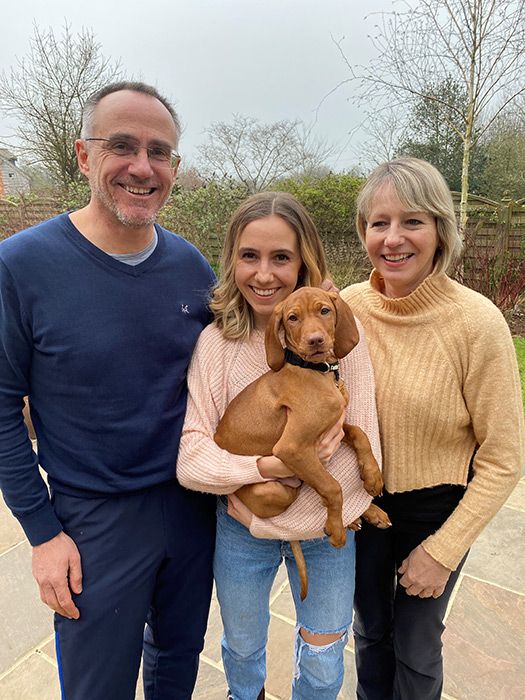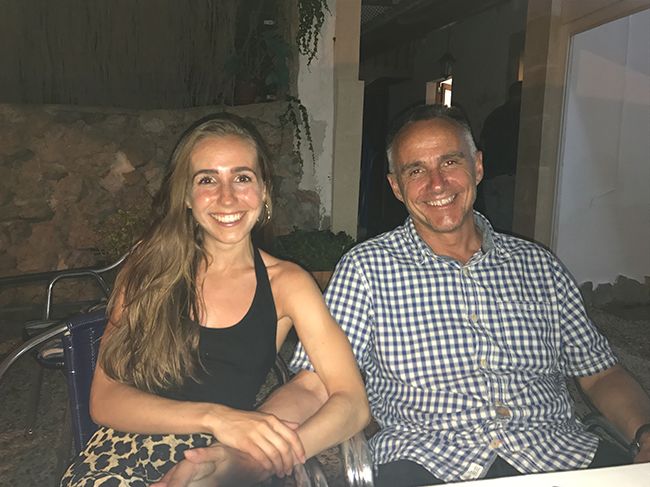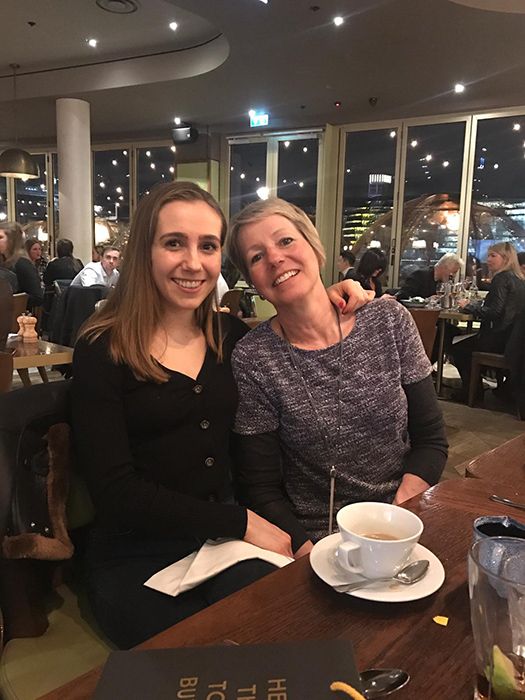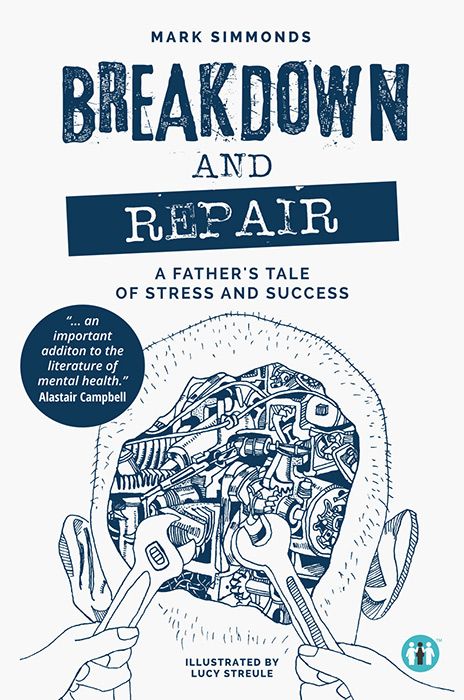It's Eating Disorders Awareness Week from 1 – 7 March, a week where the charity, Beat, shines a light on the estimated 1.25 million people in the UK suffering from an eating disorder right now – be it anorexia, bulimia or binge eating disorder.
One family who have experienced life with an eating disorder is the Simmonds family, whose daughter Emily, now 24, began her anorexia battle at age 16.
During her illness, Emily lost 19kg, however with the help and support of her parents, Mark and Mel, she recovered, attended university, and now works as an Assistant Producer at ITV’s This Morning.
Through lockdown, Mark, Mel and Emily have been reaching out to other families affected by eating disorders. Mark has also written a book, Breakdown and Repair, about Emily’s battle against anorexia.
RELATED: How to manage an eating disorder during self-isolation
Emily with her parents
Here, the couple share their moving story and give advice on how to help a family member recover from an eating disorder….
"Our daughter, Emily, developed anorexia nervosa during the summer of 2012. We didn’t panic. Just a few weeks, we told ourselves, and things would be back to normal.
Six years later, when we sat with Emily at a restaurant on the island of Mallorca and saw her eating a plate full of food like any other young adult, I told her how proud I was she was finally eating normally again. Six long years.
When we reflect back on this period, we strongly believe that it’s the first six months that are critical if you want to have any chance of stopping the illness in its tracks.
How to spot the signs & help a child/family member suffering from an eating disorder:
1. Understand that anorexia is a mental illness
Anorexia nervosa, usually referred to as anorexia (although we came to refer it as Ana) is an eating disorder, characterised by an extreme aversion to eating.
This results in low weight and a fear of gaining weight and this food restriction is often driven by a strong desire to be thin. The exact causes of anorexia are unclear but it appears that individuals with a genetic tendency towards perfectionism and the need for control have a greater likelihood of developing this mental illness.
Emily with her dad Mark
All it took with Emily was the arrival of a perfect storm of external events, working in harmony to activate her perfectionist streak. Exam pressure, the sudden death of a favourite school teacher, glandular fever, an eye-opening World Challenge trip to a poverty-stricken part of Ghana in Africa as well as some irrational body image problems were the catalysts.
Anorexia has the highest mortality rate of any psychiatric disorder. My wife, Mel, and I would go on to discover what a brutal, relentless and unforgiving enemy we were up against. We would soon come to realise that its single-minded objective is to kill its victim and it is prepared to go to any lengths, however underhand, to achieve its goal.
But always remember that anorexia is a mental illness and mental illness is generally not a quick fix.
MORE: 5 ways to support your family's mental health during the pandemic
2. Spot the early warning signs
In September 2012, Emily entered the sixth form at Aylesbury High School to begin her A-Levels. A month or so later, Mel came into my study at home with a slightly worried look and said, 'We need to talk about Em'. She had been making herself sick.
One of her friends had become suspicious of her behaviour, had shared this with her own mother, and they had both confronted Emily. They encouraged her to speak to Mel and said if she didn’t, they would feel they had no choice but to tell her themselves. Our daughter came home and confessed. She had developed an eating disorder.
Our initial reaction was low-key. From the outside, nothing seemed to be drastically wrong. She might have lost a couple of pounds or so, but it wasn’t significant enough to really notice. Besides, she was doing a lot of exercise at school, was heavily involved in a dance show and musical theatre production as well as playing netball two or three times a week. We had put the weight loss down to a busy schedule. Nothing more.
However, we did notice that she was becoming increasingly faddish around her food choices and more selective with what and when she ate and drank. The clues will not be obvious but they will be there. We just didn’t spot them.
Emily and mum Mel
3. Act quickly and decisively
Although Mel and I were aware of both anorexia and bulimia, we were not fully informed about either the causes or the symptoms. We didn’t know anybody within our circle of friends whose children had suffered from either illness. But to our credit, we were not complacent.
We acted immediately by making an appointment via our GP with the Child and Adolescent Mental Health Services (CAMHS). We also informed the school of the situation. At this point in time, Emily was still attending school full-time, and therefore she was ‘outside of our control’ for much of the day.
And fortunately for us, Emily also understood that she had a serious problem that needed to be sorted out sooner rather than later. She certainly wasn’t in any kind of denial.
We would come to realise in years to come, when other sufferers reached out to us for help, that admitting you are ill is a critical first step in the recovery process. We also encouraged Emily to come clean with her immediate friendship set, and even though the illness would remain a complete mystery to them, their support during the course of the illness was unwavering.
The key thing is to seek help from as many sources as possible, as quickly as possible.
MORE: 6 common causes of stress in children
Dad Mark's book: Breakdown and Repair
4. Remain vigilant 24/7
Within a few months of Emily becoming ill, Mel and I soon began to understand what we were up against. We were fighting an enemy who knew every trick in the book. She possessed a variety of weapons in her armoury which always had one single-minded objective: weight loss.
In summary, anorexia is a cruel and heartless monster. By understanding that it is a mental illness, by spotting any early warning signs, by acting quickly and seeking professional help, and by remaining vigilant 24/7, you give yourself a chance of stopping it dead in its tracks.
Better to do all you can in the first six months rather than suffer for six years."
Mark Simmonds tells the story of Emily’s battle against anorexia in his book Breakdown and Repair. You can follow Mark on Instagram @mentalhealthmark
For more advice and help with eating disorders visit beateatingdisorders.org.uk












